
If they share the cage with another chinchilla, they obviously have a companion.
But what if they occupy the cage alone?
Do chinchillas get lonely when they don’t have a cage mate?
The truth is, it depends largely on you.
Even without a second chinchilla, you can take on the role of social companion.
Keep reading to learn whether chinchillas get lonely, what consequences that can have, and what you need to do to keep your pet happy.
Contents
Do Chinchillas Get Lonely?
Yes, chinchillas get lonely. To prevent loneliness, you need to set aside time to interact with your pet daily, or consider getting a second chinchilla as a companion for your first one.
For the rest of this article, we’re going to break down chinchilla loneliness, to help you understand how they can get lonely, what more serious issues this can lead to, like depression, and what you can do about it.

😕Adopting and caring for a new chinchilla can be intimidating and confusing. But it does not have to be.
Be sure to check out my full digital eBook “Avoiding Critical Mistakes: Ultimate Chinchilla Care eBook” for the best advice, tips, and tricks and supply recommendations to make adopting and caring for a chinchilla much more comfortable and easier to understand.
You can learn more about this eBook offer using the link directly below.
Learn more here:👉 Avoiding Critical Mistakes: Ultimate Chinchilla Care eBook Offer
Chinchilla Loneliness
Chinchillas need social interaction. They crave it. In fact, learning how to socialize your chinchilla is one of the first steps you need to take after adopting your new chinchilla.
And it does not matter if your pet socializes with you on a daily basis, or with another chinchilla in the household. It just needs to happen.
They are social pets and eventually, without this social interaction and affection, you can start running into some issues (more on this shortly).
Without this affection, love, and interaction, your chinchilla will get lonely. First, this will lead to boredom.
Following the boredom, you can begin seeing other issues, like destructive chewing. Your chinchilla will slowly transition into a more anti-social pet, which will cause problems for you in the future.
Trust me, if you want to purchase/adopt a chinchilla, you need to understand 1 thing. It is not a pet you can just put in a room somewhere and forget about. You can’t neglect a chin.
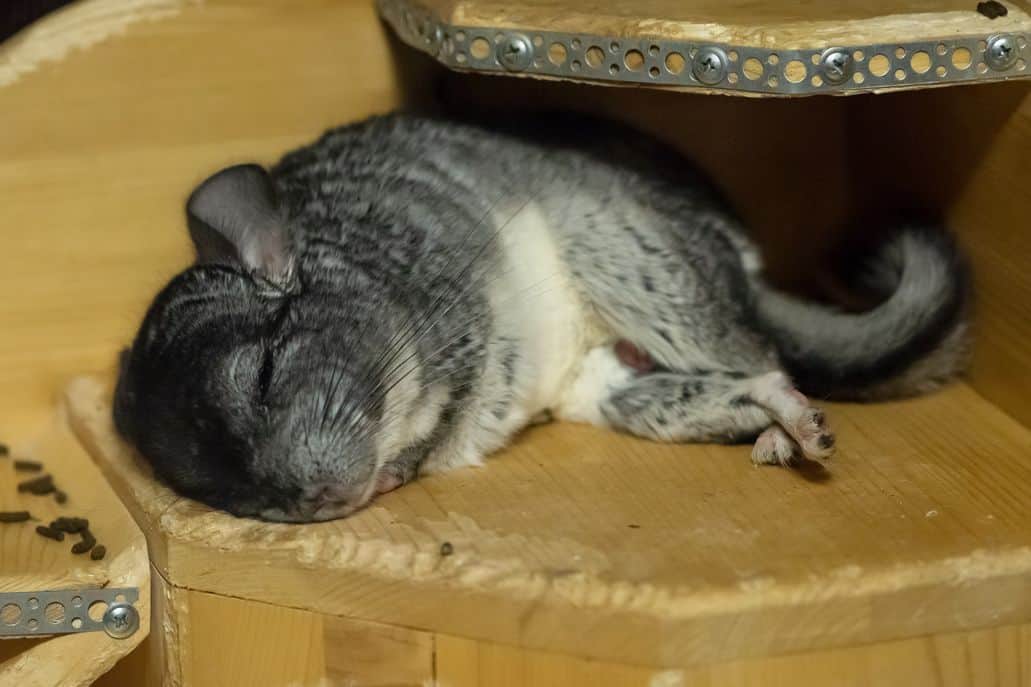
It is unethical, plain and simple. It is also cruel. They will get lonely and eventually have complications due to neglect and loneliness.
If you were planning on getting a chin and leaving it alone, cancel the adoption. Get a fish or a reptile instead.
If you plan to show love, perhaps plan to adopt a second chinchilla, and plan to truly learn how to take care of a chinchilla, then you are on the right path and will make a fantastic chinchilla owner who never has to worry about loneliness.
Chinchillas Are Social Animals In Their Natural Habitat
Before moving into a few more of the specifics about if chinchillas getting lonely, I want to mention a fun fact that makes it easier to understand the personality of a chinchilla.
Think of it like this. Chinchillas in the wild run in packs. They are used to companions and using each other to survive. They constantly communicate and interact with one another.
It is how they pulled back from nearly going instinct in the wild. They rely on one another and are always around other chinchillas. They are not an animal that is used to being a lone wolf ad they feel very uncomfortable on their own.
Chinchillas that share a habitat even grow accustomed to grooming each other by licking each other, and find clever ways to play with each other and keep each other entertained and happy.
The point being: your chinchilla needs attention to avoid loneliness. Either you provide it, or you get a second chinchilla to help lessen the burden.
Can Chinchillas Die From Loneliness?
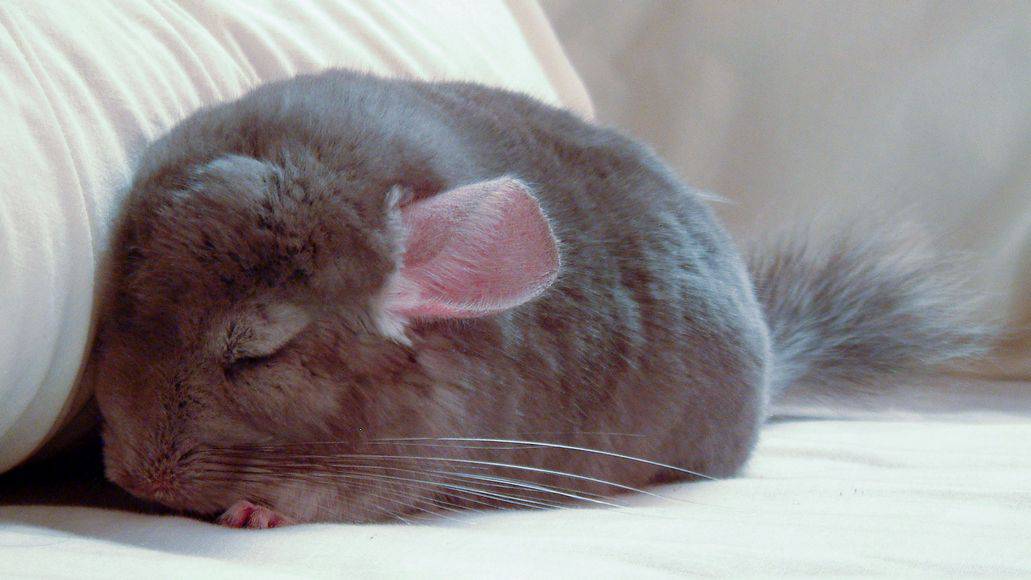
Alright, now I want to move on to a common question that I see arise on the topic of chinchillas and loneliness.
And no, a chinchilla will not die from loneliness specifically. But a chinchilla’s behavior and eating may be altered by loneliness or due to losing a bonded companion.
I hope this makes sense. If not, we can look at this from another angle.
When a chinchilla begins feeling lonely after losing a companion, it will not die. However, things will certainly change, much like what happens with other pets and even humans, when we lose something we love.
Loneliness may result in other issues for your chinchilla, which may ultimately lead to death, if it is not recognized or taken care of.
This may include things like the following:
- Lack of appetite
- Lack of water consumption
So, what do you do on your end to ensure you are remaining ethical, showing love and helping your chinchilla through loneliness?
It is easy my friends.
Don’t be the cause of the loneliness. If you don’t have a second chinchilla, you are not alone. I do not even have a second chinchilla yet, but I do plan to purchase an ebony chinchilla very soon.
But that means that it is on you to provide the love and social interaction your chinchilla needs.
If your chinchilla had a cage mate or companion for a long time and lost their soul-mate, then you need to ensure you are either replacing that social interaction as time goes on and monitoring how your surviving chinchilla is handling it.
In my opinion, ensuring loneliness does not become an issue comes down to common sense and simply having a heart for your pet.
Keep an eye on things, show love, and take the time to interact with your pet and you will not be in a situation where you have to worry about loneliness, depression, and the side effects that come with that with your chinchilla.
It is that simple.
Now, before entering the stage of this post where I begin to wrap it up, I want to touch on a heavily debated topic that directly correlates with chinchillas and loneliness.
Companion chinchillas. Here are those details next.
Do Chinchillas Need Companions?
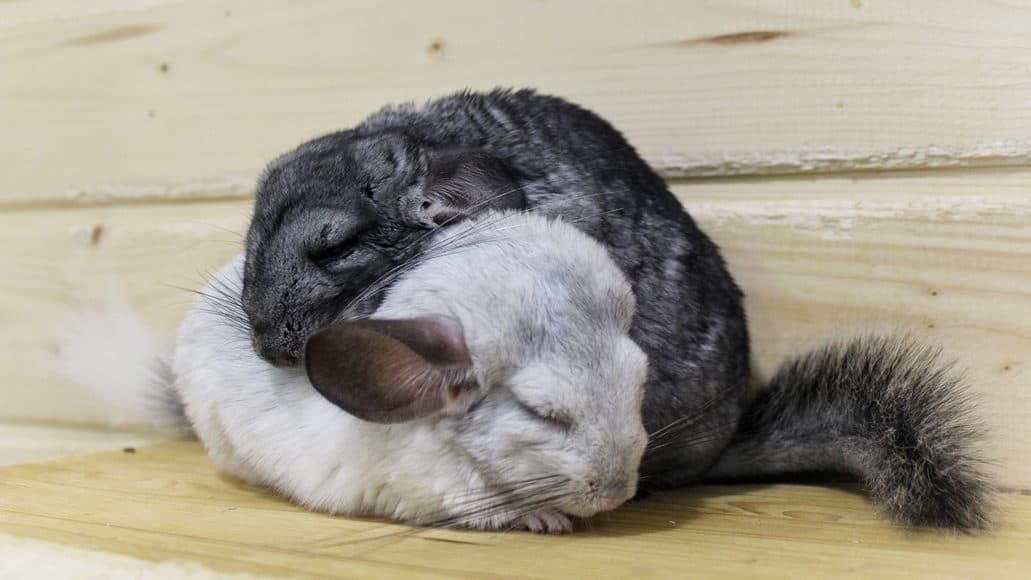
Alright friends, here come some hard truths and possibly even contradictions to what some other websites publish on these topics. Of course, those sites are usually run by someone who has never owned a chinchilla themselves.
No, a chinchilla does not need a companion.
However, do not be confused by what companion means. To me, companion means that a chinchilla requires a second chinchilla to bond and mate with, which is 100% false.
Now, is it a bad idea?
Absolutely not and I want to get my chinchilla her forever mate soon as well.
However, for tons of reasons I won’t get into here, like budget, time, etc., a second chinchilla is not always feasible for all of us. Heck, I own, operate, and run a chinchilla based website and do not even have a second chinchilla (yet).
If you can be the companion for your chinchilla and provide it social interaction, show it love, and properly care for it, then your pet does not need a companion.
Would it love to have the companionship of another chinchilla?
Maybe and maybe not.
It depends on tons of factors such as your chinchilla’s age, social ability, and honestly, simple luck of the draw. I am still nervous to this day about getting a second chinchilla because I am just not sure how my chinchilla will react.
I know she is a sweetheart and does great with me, my family, and even my 4-year-old son, but that does not mean things will always work out perfectly.
It could be possible that she loves her life without a companion and loves the time with me by herself. Yes, friends, chinchillas do get jealous.
A Companion Is An Excellent Idea For Those With Tight Schedules
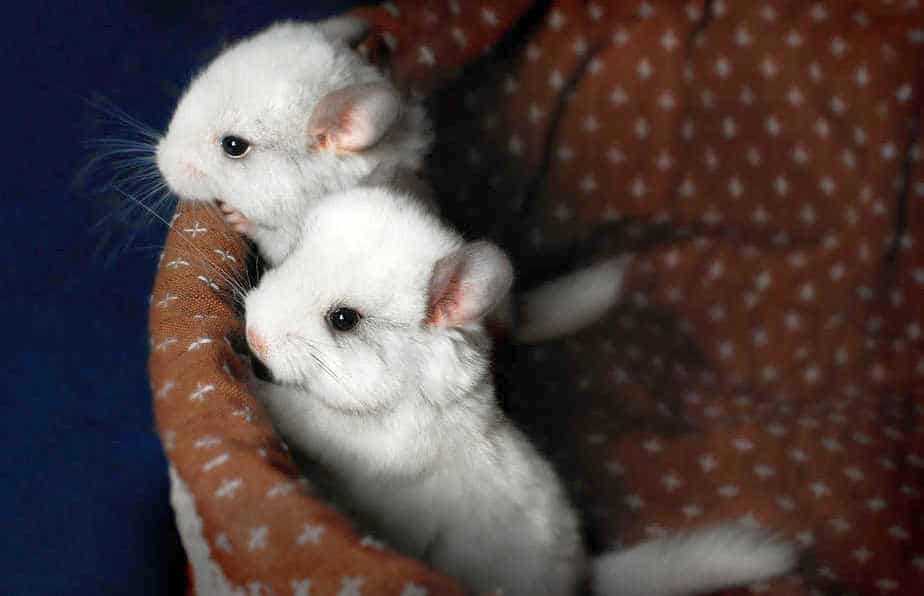
Now, let’s say you are somewhat in the middle. You’re a fantastic chinchilla parent, but sometimes life just gets in the way.
Maybe you have found yourself missing two days a week of playtime, instead of one. Maybe you just know in your soul that your chinchilla will blast off with happiness with a companion.
Let me also assume you have the budget for another chinchilla. If that’s the case, I’ll keep this as simple as possible.
Get your chinchilla a companion!
A companion chinchilla can offer many benefits for you, your family, and your chinchilla. It’s even been shown that bonded or paired chinchillas are more friendly.
This does not necessarily translate into a more cuddly chinchilla. However, they will have an easier time adjusting to human interaction than chinchillas that have been fully isolated the entire time that they have been around.
You see, when a chinchilla has all other needs accounted for, like food, water, bedding and hay, only one thing is missing.
Social interaction.
If your chinchilla is given the ability to have its social needs met, then all basic needs have been accounted for and it’s looking like you are in great shape.
When this happens, your chinchilla is likely to be more content, happy, and mentally healthy and stable.
Why I Know That Companion Chinchillas Can Be A Great Choice
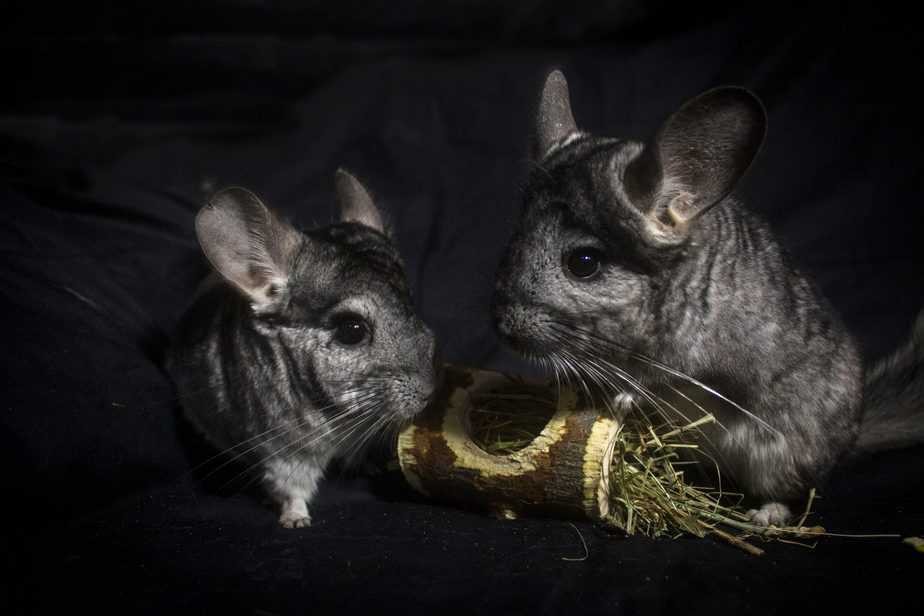
I know it is possible and that it makes for a happy chinchilla in most situations, because I adopted my chinchilla from a chinchilla breeder near me.
Chili (my chinchilla) was not even one year old at the time and was in a huge chinchilla cage with her cage mate.
Come to think of it, writing this post 5 years later now makes me sad that I took her away from this cage mate, but I suppose time has healed those wounds for her.
The breeder I adopted from had all of the chinchillas bonded in cages together.
Yes, chinchillas are prone to fight from time to time. Simple sibling rivalry, if you ask me. Maybe you have more chinchilla barking taking place if you get a companion as well.
However, at the end of the day, a companion chinchilla for your beloved chin is another mind, heart, and soul inside of the house for your chinchilla to go through life with.
While they are not necessary if you can provide the love and attention, a companion chinchilla is never a bad idea if you ask me. Hopefully, I will have plenty of pictures of my new chinchilla, when I take this leap of faith in the future as well.
The only other piece of advice I have for you, if you decide to get a companion chinchilla, is please, please make sure to get a large enough cage. You should always get the best chinchilla cage possible.
I will not dive into details on this post but I have been recommending the Critter Nation 2 Dual Level Cage for 4+ years now and it still ranks as my #1 choice, for a single chinchilla or for two.
It is fantastic.
Great, now let’s move on to some frequently asked questions on this topic, before I send you on your way.
Chinchillas Getting Lonely: Common Questions
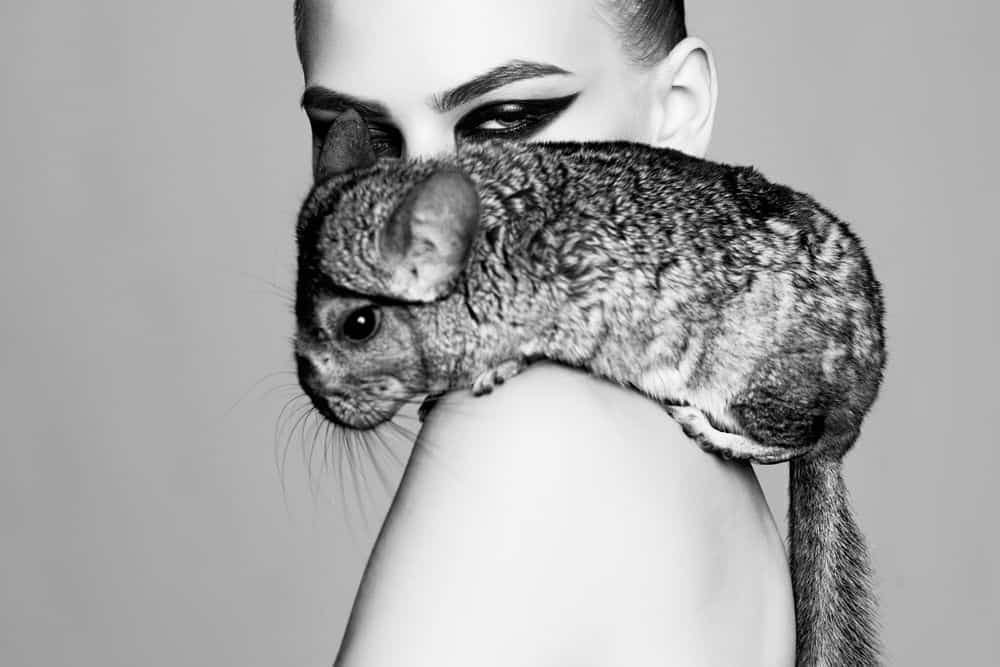
Do Chinchillas Always Like Other Chinchillas? Is it Possible They Want to Be Alone?
Yes, this is possible. Some chinchillas simply defy the norm and don’t enjoy being around other chinchillas. If you end up with two chinchillas that do not get along, you have two options.
- Option 1: You could look for a suitable and loving home for one of your chinchillas, so that you don’t have two chinchillas interacting that don’t get along.
- Option 2: You could keep both chinchillas, but separate them in different cages.
Issues May You Run into If You Keep Them Together
When I first got my chinchilla from the breeder, I sat down and spoke to the breeder for several hours, to learn the ins and outs of chinchillas before heading home and embarking on the journey.
I had so many questions that I wanted to make sure I covered all bases. One story about my chinchilla who is a 1-year old female stood out to me.
The breeder showed me how she was currently housed in a separate cage but hadn’t always been. Her cage mate before that was another female.
For the first few months, they got along great. However, the other chinchilla began playing much rougher over time. This caused the chinchilla I ultimately adopted to have many fur slips, or missing patches of hair, from the rough house style of play.
Now, this doesn’t necessarily mean this is the end of the world. Chinchillas are like toddlers. They jump, hop, lick, nibble, and just find a way to get into trouble sometimes.
It’s in their blood, and it’s their nature.
However, who knows what would have occurred if the rescue owner hadn’t ultimately separate the chinchillas for my pet’s safety.
Since bringing her home, I haven’t adopted a second chinchilla. I do, however, work from home and she sits in her cage right by me during my workday.
She hears my voice on phone calls and I also dedicate at least 30-45 minutes a day to get her out of the cage for playtime and interaction time.
So far, she has been happy with the arrangement, or at least it appears that way.
Do Chinchillas Mate For Life?
For the most part yes. Like I stated before. Chinchillas are naturally social and run in pairs or herds for survival in the wild.
However, let’s refer to my story and situation. My chinchilla is a female that was almost 1 year old when I adopted her.
As mentioned, her previous cage mate was also a female. Females do tend to be more aggressive towards each other than male/male cage mates.
This doesn’t necessarily mean this will happen for sure, but more frequently you will see two females that ultimately need to be separated as opposed to a set of two males needing separation.
As far as male/female pairing, well I think you can guess what happens when you decide to let this take place. Let’s just say, that you may need to plan to purchase more chinchilla cages soon.
Do Chinchillas Require A Lot Of Attention?
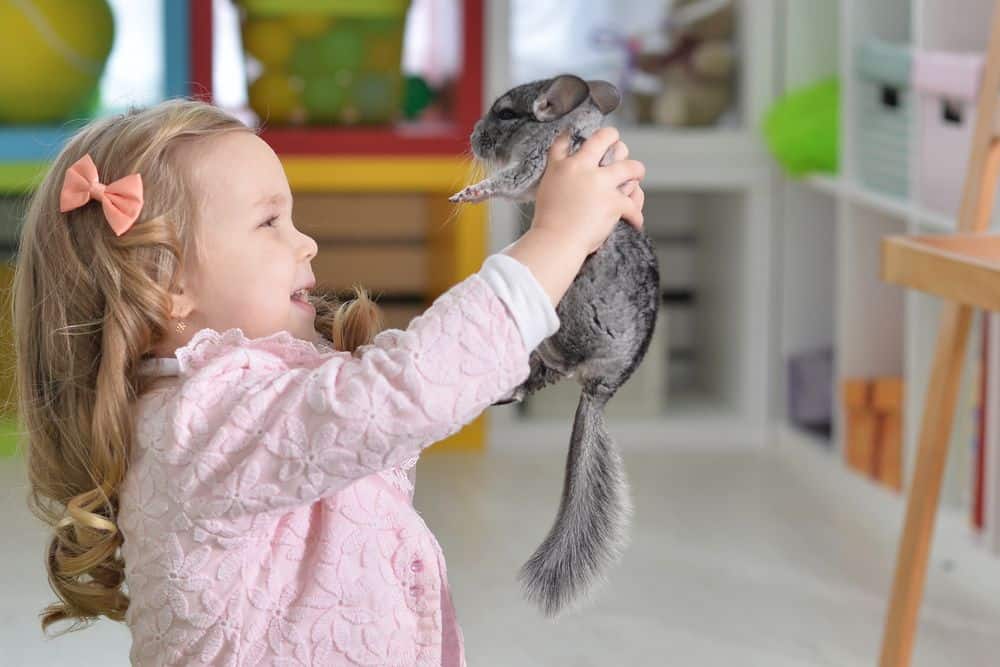
Yes, chinchillas require a lot of attention. Chinchillas that are kept isolated or without another chinchilla companion will need even more dedicated attention.
If you know for sure you just don’t have the time to get your chinchilla out for dedicated playtime, you should consider not purchasing a chinchilla at all.
Chinchillas for young children can also be an issue, but it this could be up for debate. For example, a chinchilla is excellent for young kids because they live for long periods and require little maintenance outside of love and attention.
On the other hand, chinchillas are fragile and skittish. Without you around, they may get injured or try to run away or hide. They can easily be frightened by children being loud or mishandling them.
In addition to fleeing, this can also cause shedding, fur slips, or in rare cases, your chinchilla may bite.
Chinchilla Get Lonely: Final Thoughts
Chinchillas can absolutely get lonely, and they absolutely prefer interaction with either you, another chinchilla, or a combination of both.
However, a chinchilla will not die directly from loneliness and does not necessarily need a companion to have a long happy, and healthy life.
Providing neither will lead to a non-social chinchilla that may experience other issues, like not eating, acting out by doing things like chewing its own fur, becoming more unpredictable out of the cage (or, at times, even while in the cage), or even premature death.
It’s up to you to ensure that your chinchilla recognizes you as the owner and begins forming that bond with you.
Over time, this is only going to increase your chinchilla’s overall happiness and comfort level in your home and make it a long time 15+ year loveable companion.
Chili and I wish you the best of luck with your new chinchilla and hope loneliness is never something your pet has to deal with.
What are your thoughts when It comes to a lonely chinchilla?
What’s your experience with bonding or pairing chinchillas and ensuring your chinchilla never gets lonely?
Have you ever experienced any issues with your chinchilla becoming lonely and acting out because of this?
Be sure to share those thoughts, stories, and concerns by dropping a comment below.
As always, Chili and I appreciate you stopping by and reading today and we will see you again next time!
Leave a Reply